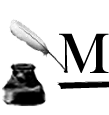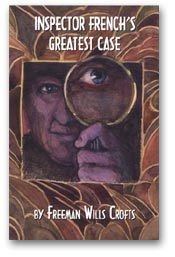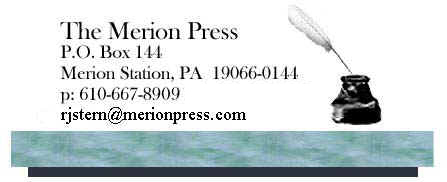 |
 |
 |
|

 The
Merion Press is pleased to bring you another out-of-print masterpiece of detective
fiction. Considered one of Freeman Wills Crofts’ best works, Inspector
French’s Greatest Case was first published in 1924. It was selected by Howard
Haycraft to be one of the works included in the ultimate mystery list: The Haycraft-Queen
Definitive Library of Detective-Crime-Mystery Fiction, Two Centuries of Cornerstones
1748-1948. The
Merion Press is pleased to bring you another out-of-print masterpiece of detective
fiction. Considered one of Freeman Wills Crofts’ best works, Inspector
French’s Greatest Case was first published in 1924. It was selected by Howard
Haycraft to be one of the works included in the ultimate mystery list: The Haycraft-Queen
Definitive Library of Detective-Crime-Mystery Fiction, Two Centuries of Cornerstones
1748-1948. Unlike other mystery writers who have made the police appear to be incompetent, Crofts has given us the brilliant Inspector French, a first class investigator, albeit within the ranks of Scotland Yard. Charles Gething, head clerk at London’s Duke and Peabody’s,
diamond merchants, is found murdered in front of the firm’s open safe. Inspector
French is assigned the case, which he works on methodically, through a series of
fascinating clues, in England and abroad. Croft rewards us with a highly entertaining,
thoroughly satisfying, classic British mystery story.
|

 Born in Dublin, Ireland, in 1879, Freeman Wills Crofts attended
Methodist College and Campbell College in Belfast. At the age of 18 he was employed as a
pupil on the civil engineering staff of the Belfast Counties Railway. He held various
positions in railway engineering, becoming Chief Assistant Engineer at the Belfast
Counties Railway, then known as the L.M.S. Northern Counties Committee. While there,
Crofts wrote his first novel, The Cask (1919), which established him as a new master of
detective fiction. Thereafter he wrote The Pit Prop Syndicate (1922), The Groote Park
Murder (1923), Inspector French’s Greatest Case (1924), The Cheyne Mystery (1926),
and Inspector French and the Starvel Tragedy (1927). These were so well received that he
retired from railroad work at age 50, moved to Guildford, Surrey, and devoted his entire
time to writing, publishing that year The Purple Sickle Murders (1929).
Born in Dublin, Ireland, in 1879, Freeman Wills Crofts attended
Methodist College and Campbell College in Belfast. At the age of 18 he was employed as a
pupil on the civil engineering staff of the Belfast Counties Railway. He held various
positions in railway engineering, becoming Chief Assistant Engineer at the Belfast
Counties Railway, then known as the L.M.S. Northern Counties Committee. While there,
Crofts wrote his first novel, The Cask (1919), which established him as a new master of
detective fiction. Thereafter he wrote The Pit Prop Syndicate (1922), The Groote Park
Murder (1923), Inspector French’s Greatest Case (1924), The Cheyne Mystery (1926),
and Inspector French and the Starvel Tragedy (1927). These were so well received that he
retired from railroad work at age 50, moved to Guildford, Surrey, and devoted his entire
time to writing, publishing that year The Purple Sickle Murders (1929).
Another Inspector French mystery, Sudden Death (1932), was published with the last 93 pages sealed and a money back offer if you could resist breaking the seal to find out the ending! Among his many other mysteries are: The Strange Case of Dr. Earle (1933), The 12:30 from Croydon (1934), The Loss of the "Jane Vosper" (1936), The Futile Alibi (1938), Tragedy in the Hollow (1939), and Death of a Train (1947). He wrote one religious book, The Four Gospels in One Story, several short stories, and short plays for the B.B.C.
In 1912 he wed Mary Canning, the daughter of J.J. Canning of Coleraine, Northern Ireland. In 1939 he was elected a fellow of the Royal Society of Arts. After a full and successful writing career, he died in 1957.

